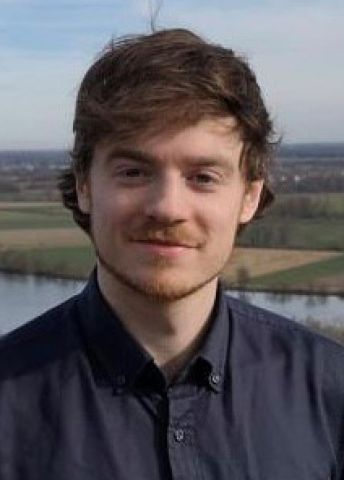
Program for mathematics 2023
Grant to a post-doctoral position abroad
Scott Mason
KTH Royal Institute of Technology
Postdoc at University of Cambridge, United Kingdom.
Grant to a post-doctoral position abroad
Scott Mason
KTH Royal Institute of Technology
Postdoc at University of Cambridge, United Kingdom.
Model for random phase transitions
Scott Mason received his doctoral degree in mathematics from KTH Royal Institute of Technology in 2023. Thanks to a grant from the Knut and Alice Wallenberg Foundation, he will hold a postdoctoral position with Professor Roland Bauerschmidt at the University of Cambridge, United Kingdom.
The research field of statistical mechanics studies large systems with many particles, among other things. Water, for example, is a substance that consists of many water molecules and is a fluid at room temperature – the molecules’ high kinetic energy means they can travel freely past each other without getting stuck. However, if the temperature drops towards zero, the molecules’ energy is so low that they instead attach to each other and the water become ice, a transformation called a phase transition.
Another sort of phase transition is when gas becomes a solid. For example, semi-conductors are built up of gas particles that attach to the surface of a material and form a surface layer. This is a type of crystal growth. This growth drastically changes if the chemical potential on the surface of a crystal varies – the surface either becomes very coarse and rough or remains flat and smooth.
The transitions between a rough and a smooth surface have already been thoroughly studied by physicists and are the subject of the planned study. Here, the aim is to create a simplified mathematical model for random surfaces by combining a number of mathematical tools – using entirely new results from statistical field theory and old results from the 1960s. The aim is to discover universal laws for the transitions between a smooth and a rough surface that will apply regardless of the underlying structures. Another question is the extent to which these structures can change before the law no longer applies.